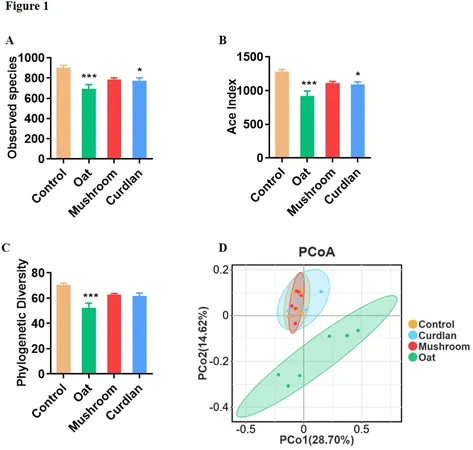
Running Long Distances: Are You at Risk for Colon Cancer? Here’s What You Need to Know
2025-08-25
Author: Mei
A Surprising Discovery in Runners
At a recent conference, researchers from Virginia's Inova Schar Cancer Institute unveiled startling findings about colon cancer among runners. Out of 100 marathoners and ultramarathoners aged 35 to 50 who underwent colonoscopies, an alarming 42 were found to have polyps—15 of which were classified as advanced pre-cancerous growths. These numbers have raised red flags, prompting a reaction from runners and health experts alike.
Understanding the Concerns
As a passionate runner and journalist, I genuinely hope these findings are an anomaly. However, I recognize the urgency in understanding potential risks. The study does lack a control group and hasn’t been peer-reviewed yet, but it does raise critical questions about the long-term impacts of extreme running on colon health.
Fitness vs. Colon Cancer: What the Research Says
Historically, numerous studies have established a strong link between physical fitness and a reduced risk of colon cancer. For instance, a 2023 Swedish study involving 177,000 men found that those with higher aerobic fitness—measured through VO2 max tests—had significantly lower colon cancer rates over a decade.
Similarly, a recent analysis of 643,000 U.S. military veterans corroborated these findings, showing that individuals with higher fitness levels were less than half as likely to develop colon cancer compared to their less active peers. These studies suggest that regular, moderate exercise is crucial for maintaining colon health.
Are Extreme Runners Different?
So how do we reconcile these encouraging fitness findings with the alarming new data on marathon runners? It’s possible the runners in the recent study represent a more extreme subset of athletes engaging in levels of endurance training that haven’t been thoroughly examined. These extreme athletes aren't just casual runners; they’ve completed several ultramarathons and marathons, pushing their bodies beyond typical limits.
The theory posits that long-lasting exercise might redirect blood away from the colon, potentially leading to oxygen deprivation, inflammation, and cellular damage.
Finding the Truth
While we can’t definitively conclude that these recent results indicate a serious health threat, they warrant further investigation. It’s possible the participants might have already been experiencing bowel issues, which could skew the data. Nevertheless, the discussion should inspire more research to clarify these findings.
What If the Results Are Valid?
If these results are validated, it’s crucial to approach running holistically. Participation in running should be based not just on its impact on colon health, but also on its benefits for overall cardiovascular, mental, and emotional well-being. In fact, the risks associated with a sedentary lifestyle far outweigh those of regular exercise.
For now, it's vital to heed the American Cancer Society's recommendation: begin regular colon cancer screenings at age 45. Prioritizing your overall health while staying informed can empower runners to make educated choices about their fitness journeys.




 Brasil (PT)
Brasil (PT)
 Canada (EN)
Canada (EN)
 Chile (ES)
Chile (ES)
 Česko (CS)
Česko (CS)
 대한민국 (KO)
대한민국 (KO)
 España (ES)
España (ES)
 France (FR)
France (FR)
 Hong Kong (EN)
Hong Kong (EN)
 Italia (IT)
Italia (IT)
 日本 (JA)
日本 (JA)
 Magyarország (HU)
Magyarország (HU)
 Norge (NO)
Norge (NO)
 Polska (PL)
Polska (PL)
 Schweiz (DE)
Schweiz (DE)
 Singapore (EN)
Singapore (EN)
 Sverige (SV)
Sverige (SV)
 Suomi (FI)
Suomi (FI)
 Türkiye (TR)
Türkiye (TR)
 الإمارات العربية المتحدة (AR)
الإمارات العربية المتحدة (AR)